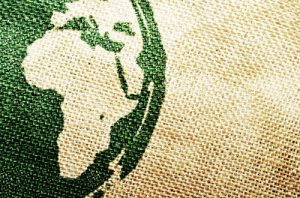
There were diverse views on the “Brexit” or “Bremain” sentiments by the British citizens. Brexit was the ultimate result on the 23rd June 2016, as citizens of United Kingdom (UK) voted to “leave” the European Union (EU).
The call for Brexit was due to a number of reasons, such as the amount of sovereignty the country has lost to the EU regional bloc. Issues of concern came from various sources highlighting immigration and its impact on jobs, healthcare burden – and the automatic right to other welfare benefits. Issues such as these prompted the Brexit sentiment and caused increased hostility towards the EU – not only in the UK but also in France, Netherlands and Germany.
This special report serves to analyse the implications of Brexit from the EU on Africa’s economy and the continent at large.
Britain joined the EU in 1973 and it brought along its former colonies to position them for aid under an agreement that was already benefiting former French colonies. This arrangement came to be known as African, Caribbean and Pacific States (ACP) – which allowed African aid and trade to be negotiated.
Before Africa joined the ACP in 1975 – its exports to the EU were 6% of all EU imports. But fast-forward to the end of 2000 – Africa’s exports to the EU had shrunk to 1% – and one may conclude that the EU subdued Africa’s capacity to export under ACP. Whereas the EU was awarding large sums of aid to Africa – it was at the same time enforcing punishing and prohibitive trade practices which put brakes on Africa’s growth and innovation potential.
What could potentially be the implications of Brexit on African countries? Several factors might be at play here:
Brexit will have an impact on the global economy; trade and investment are likely to bear the brunt of this. The only trade arrangement the UK has with African countries are negotiated through the EU – which in effect means that once the UK leaves the EU – the trade relationships and agreements would be null and void.
Brexit will be calamitous to Africa – as UK would no longer be shaping and leading some of the most important initiatives in the African continent that form the basis of cooperation between Europe and the continent.
Brexit would negatively impact on the key regional blocs in Africa as it has served as one of the strongest support for the development of economic growth, political and democracy.
The emerging markets and frontier asset markets will by default come under colossal pressure – with financial instability been the order of the day. Countries under the spotlight in Africa where impact would be felt tremendously are among the others, are: South Africa, Nigeria, Kenya and Egypt. Their analysis is as follows.
THE REPUBLIC OF SOUTH AFRICA (RSA)
- SA’s already bad economy may be the worst affected by Brexit.
- SA is UK’s largest African trading partner and the UK remains the country’s 7th largest import and export market in global terms according to 2014 data.
- Trade, investment and indirectly development aid would be badly affected.
- Brexit to void all trade agreement deals including the EU-SADC Economic Partnership Agreement.
- For SA – Brexit would mean possibilities for higher inflation, extended weaker growth, higher interest rates and possibilities of capital outflows.
- 0.5% decline in SA Gross Domestic Product (GDP).
- Currency volatility – by mid-morning of Brexit news/results – the rand had fallen more than 7% its steepest single-day decline since the 2008 financial crisis.
- SA’s close financial ties to the UK could be a concern – British banks’ claims on RSA entities account for 178% of RSA foreign currency reserves according to analysts from UniCredit.
NIGERIA
- Bilateral trade between Nigeria and UK – currently at £6 billion ($8.3 billion) and projected to reach £20 billion by 2020 – will be disrupted as trade agreements made under the EU – which have to be renegotiated.
- Brexit couldn’t come at a worse period for Nigeria – Africa’s largest economy which is at the brink of recession.
- Data from the National Bureau of Statistics indicate that the UK was Nigeria’s largest source of foreign investment in 2015.
- Brexit upshot could signal a globule in investment, trade and also remittances from Nigeria diaspora who sent home $21 billion in 2015.
KENYA
- Britain’s third largest market and ally.
- Brexit would mean capital flight as investors seek safe havens like US treasuries – falling exports and pressure on the Kenyan Shilling.
- A weaker Kenyan Shilling will make imports more expensive for Kenya whose import bill has been increasing more than 10% a year over the last five years.
- Kenya would lose 4 billion Kenyan Shillings a month – if a trade deal between East African Community and the EU is stalled by Brexit – which is set to create more uncertainty for Kenya exports.
EGYPT
- The main stock index fell by 1.3% with investors worrying about a loss of British investment and demand for Egyptian exports.
- Egypt GDP is set to take a huge knock and might drop from second position as Africa’s 2nd largest economy – as 41.5% of its country’s GDP growth depends on the UK’s foreign direct investment – which is expected to declines once Brexit takes on full effect.
Brexit is going to have far-reaching financial consequences for Africa and will have a negative impact on the continent’s economies. The UK is the biggest single investor in the SA economy and Brexit has brought about massive political and economic uncertainty – we can expect severe volatility in the markets and a further slowdown in the economy.
Brexit from the EU may be the beginning of the end for the European Union. Brexit would weaken ties between the United Kingdom and African countries. The renegotiation of trade agreements would be a lengthy process – which would in effect cause a diminution in trade volumes between the UK and Africa, with over 100 trade agreements set to be renegotiated by the UK, once Brexit is set in motion.
About the author: Dipolelo Moime, is the founder and CEO of Legato Consultancy Pty Ltd, a dynamic Africa risk advisory, research and management consulting firm in Johannesburg, South Africa. In his capacity he assists multinational corporations with expansion and risk management strategies for Africa and is an expert analyst on various industry topics in Africa. Find him on LinkedIn: Dipolelo Moime.


